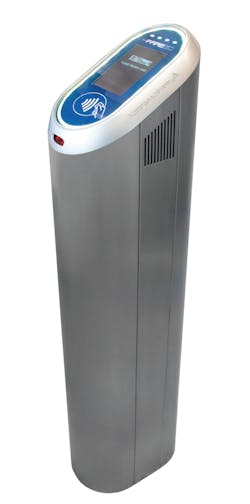System Developers Scheidt & Bachmann Present New e-ticketing validator, the FareGo Val SV|50, at the UITP Mobility & City Transport Exhibition 2013 in Geneva.
FareGo Val SV|50 is a newly developed e-ticketing validator first presented to the public by ticketing specialists Scheidt & Bachmann at the UITP Mobility & City Transport Exhibition 2013 in Geneva.
Specially designed for complex e-ticketing systems for use in any transport operation, from heavy rail to bus, light rail to ferry services, the FareGo Val SV|50 impressed the specialist audience with its flexibility, functionality and rapid processing.
The FareGo Val SV|50 delivers multiple ticketing functionality in a single housing. Alongside operator-specific Smart Cards and contact-less credit and debit cards, the FareGo Val SV|50 also processes barcode tickets. This enables the operator to implement the use of mobile phones as a ticket medium as well as paper barcode tickets.
“This high level of flexibility as well as an excellent processing speed is achieved by the use of the multi-application readers that we have developed. This highly modern read module for electronic ticket media was developed by our system architects for universal use in our field devices and represents the heart of our e-ticketing solutions”, explains Manfred Feiter, head of product management at Scheidt & Bachmann.
The ergonomic structure of the FareGo Val SV|50 offers the user simple and secure operation. The large 5.7” LCD display and the additional LED indicators can be used to check the transaction status at a glance. In addition, the user guidance is supported by acoustic signals. This means that Scheidt & Bachmann have made “e-ticketing in passing” possible.
The attractive stainless steel housing and the slim line shape of the e-ticketing validator aroused the interest of the trade fair visitors. The robust material has been designed for long term use, even outdoors, and reliably protects the technical components. This ensures that the FareGo Val SV|50 is ideally equipped for long-term and reliable operation at train stations and transport stops. This orientation is enhanced by a very low power consumption and low maintenance requirements. For service work, there is a WLAN service interface which means that opening up the unit is only necessary in very rare instances.




